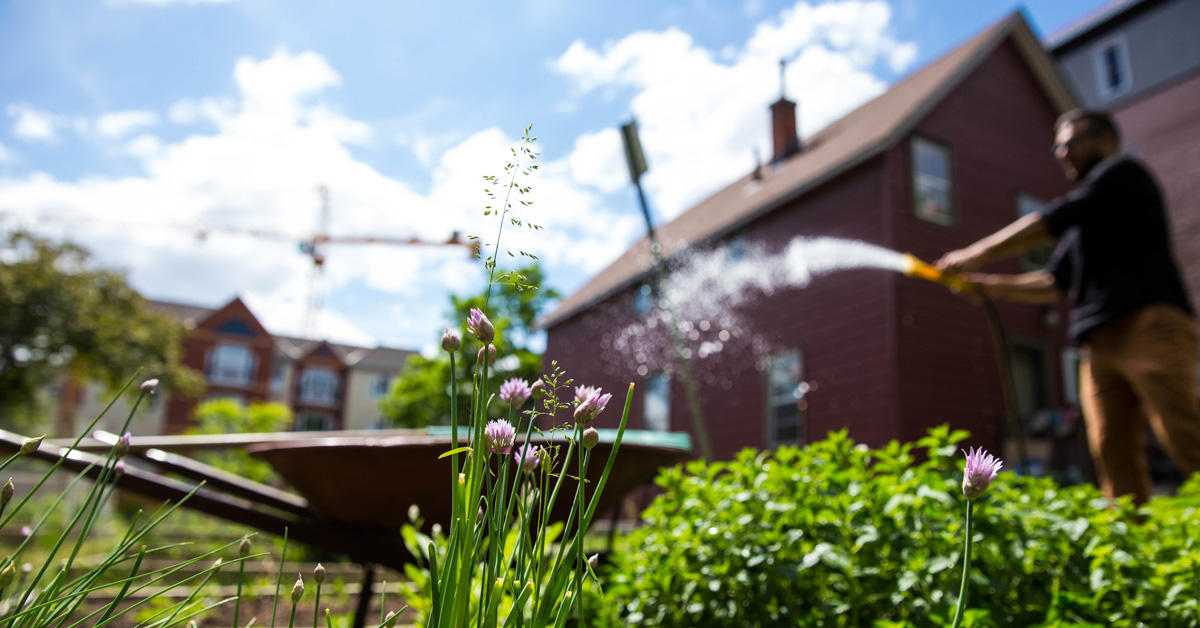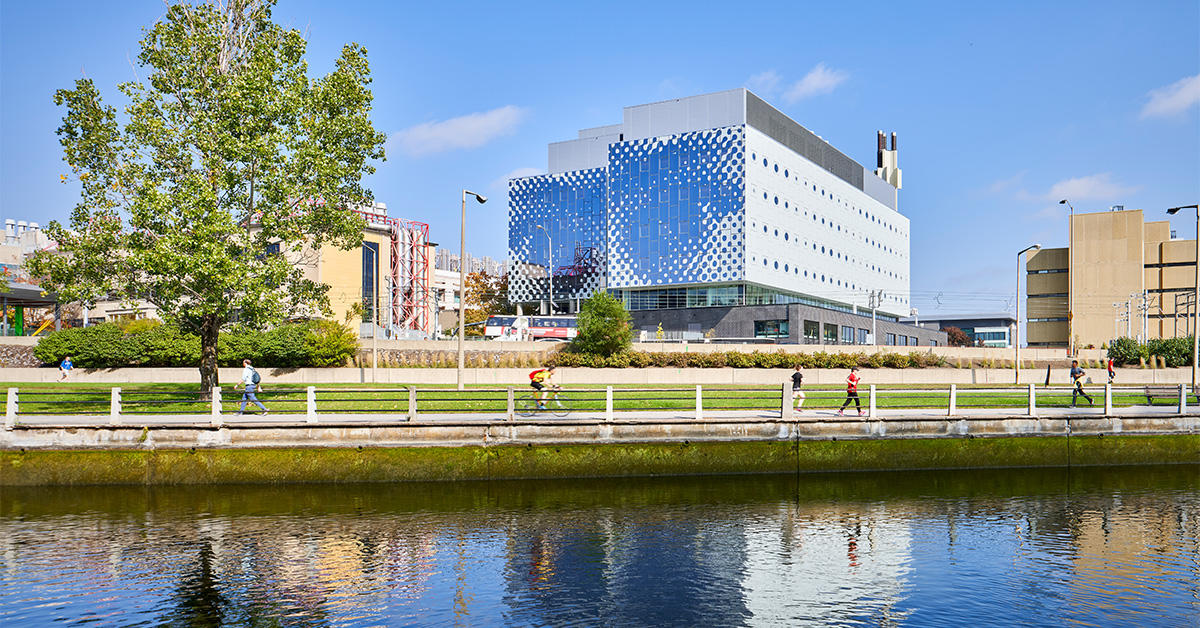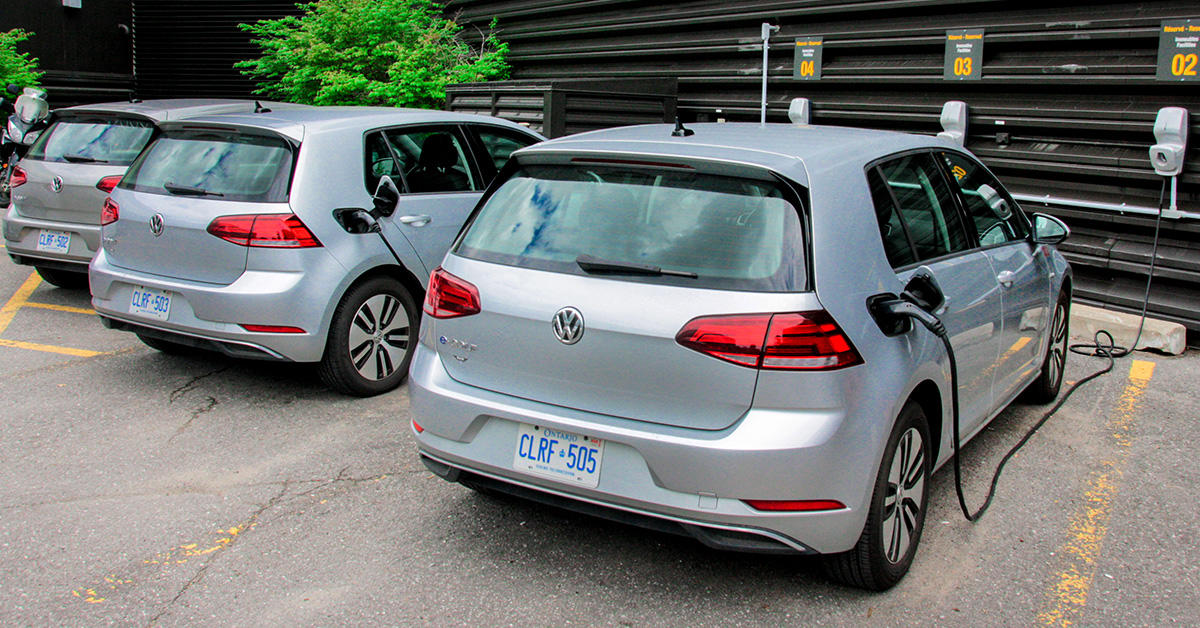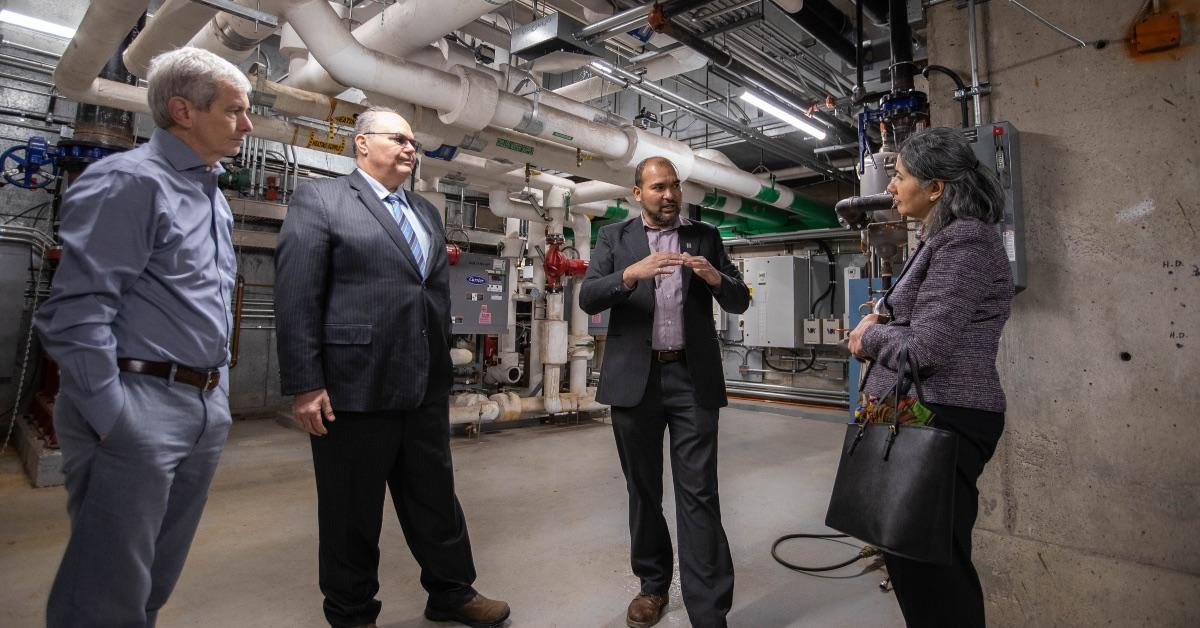




April 22, Earth Day, is an important reminder that our planet needs us to fight for it, that day and every other. That’s why the University is committed to reducing its carbon footprint and determined to integrate climate action into our programs, research and operations.
Over the past few years, uOttawa has carried out several initiatives to help make our campuses greener and more sustainable. In this article, we’re highlighting some new initiatives and revisiting some previously-published Gazette articles to see how uOttawa is making a difference across campus.
1. The University of Ottawa continues to take action in the fight against climate change
We started the year off strong! In January 2021, uOttawa’s Board of Governors gave the (green) thumbs up for our Action on Climate Change report, which summarizes the University’s progress in becoming more sustainable.
In addition, uOttawa’s Campus Sustainability Committee recently finalized its first Campus Sustainability Plan, which includes three ambitious goals meant to inspire the campus community:
- Become a zero-carbon campus by the year 2040
- Become a zero-waste campus by the year 2050
- Have every faculty and service offer community service placements by 2030
Under Policy 72, every faculty and service at the University will be required to create a sustainability plan of its own. To help with this process, the Office of Campus Sustainability is launching a #ChangeTheStory campaign, which will highlight ideas and actions that capture change on campus and help the University community tackle the climate crisis head on.
“We understand that the topic of sustainability can stir up feelings best described as eco-anxiety,” says uOttawa Sustainability Officer Jonathan Rausseo. “A focus on negative environmental outcomes is proven to increase feelings of apathy and decrease engagement. So, let’s all make a commitment to focus on successful action, which has been shown to energize people and make them want to be part of the change.”
2. uOttawa signs global statement to ramp up the 2030 Agenda for Sustainable Development
On March 24, 2021, the University of Ottawa joined 57 universities across six continents to release a joint statement to the United Nations calling for accelerated action for a more sustainable world.
The statement has come at a time when the world is facing a pressing need to scale up efforts to deliver on the sustainability agenda, whose progress has been hampered by the COVID-19 pandemic and by other global challenges, including climate change and inequality.
In the statement, university leaders reaffirmed their commitment to solidarity, resilience and prosperity, and pledged to work towards a shared vision through education, research, innovation and partnership.
3. STEM Complex earns LEED Gold certification
Anyone who has ever wandered through the STEM Complex will agree that it’s designed for the 21st century. Not only is it a playground for engineers, physicists and entrepreneurs alike, but in addition to being uOttawa’s largest and newest facility, it’s now LEED Gold certified, which means it’s officially considered an eco-friendly and environmentally sustainable building.
The Learning Crossroads (CRX) received Silver certification, and a new building at Lees campus will be our greenest yet. Some of its features will include an extensive solar array, a battery storage system and bird-friendly infrastructure.
4. Reduce, reuse, recycle (We didn’t steal this slogan. We recycled it.)
The Faculty of Medicine is helping to lead the way on waste management with the installation of Terracycle boxes at Roger Guindon, which will be used to collect and recycle personal protective equipment (PPE). In its faculty strategic plan, overseen by Dean Bernard Jasmin, Medicine commits to “leading innovation for a healthier world” in a socially, financially and environmentally sustainable manner. This commitment has inspired the distribution of the Terracycle boxes, so that disposable masks and PPE used during the COVID-19 pandemic can be easily recycled.
Did you know? Alumni will now have access to the Free Store, uOttawa’s one-stop shop to drop off stuff you no longer want and pick up things you do want — for free! Some common items you can find at the store include clothing, footwear, towels and blankets, office supplies, kitchenware, electronics, lamps, textbooks, novels and more.
5. uOttawa’s Facilities team doubles down on green transportation
Although fewer people are making their way to and around campus these days, sustainable transportation remains a priority for the University. The Facilities team has been working on a variety of initiatives for some time now, from cutting down on the amount of paper we use to purchasing bicycles to fill the campus. Learn more about their most recent initiatives to help keep the campus green and clean.
6. uOttawa signs national charter to address climate change
In June 2020, the University of Ottawa joined forces with 15 universities across the country to tackle climate change by pledging to follow responsible investment practices. This latest pledge strengthens our commitment to responsible investment and acknowledges the important role Canadian universities play in creating a sustainable future.
7. Fighting climate change, one building at a time
In 2020, the Biosciences Complex and Colonel By Hall underwent extensive retrofitting to reduce their energy consumption and improve their carbon footprint. These improvements have reduced their CO2 emissions by 2,263 tons a year — the equivalent of removing 686 vehicles from the road. What’s more, these efforts earned the University a $220,000 incentive from Enbridge Gas, which has been involved in energy efficiency projects across campus.
What are you doing to improve uOttawa’s sustainability? Email us your stories! We’d love to hear them.
